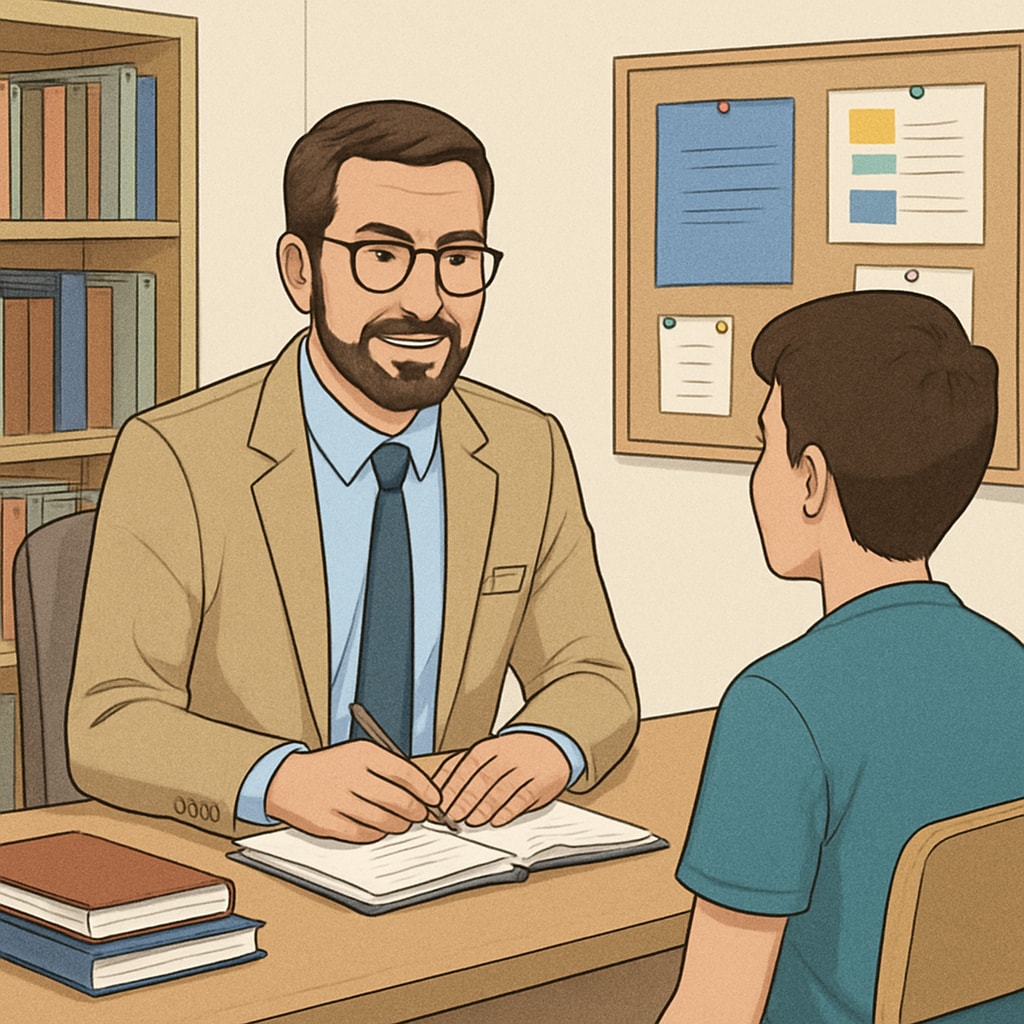School counselors play an essential role in the K12 education system, acting as both guides and support pillars for students’ academic and emotional well-being. For graduate students undertaking academic research, interviewing these professionals provides valuable insights into the psychological and educational frameworks at play. Exploring the challenges and opportunities school counselors face can help researchers better understand their contribution to student success while fostering stronger communication between academia and practice.

Understanding the Role of School Counselors in K12 Education
School counselors are integral to fostering a positive learning environment. Their responsibilities range from addressing students’ mental health needs to assisting with academic planning and career guidance. Beyond individual student support, they often implement school-wide programs aimed at promoting emotional wellness and inclusivity.
However, their work is not without challenges. Increasingly complex student needs, coupled with limited resources, can create obstacles in delivering effective support. In addition, counselors must balance administrative duties with direct student interactions, which can dilute their focus on impactful counseling efforts.
For graduate students aiming to study these dynamics, engaging directly with school counselors through interviews offers a unique opportunity to uncover both the successes and struggles of modern K12 counseling. Such interviews can provide firsthand perspectives that are invaluable for shaping future educational policies and practices.

How Graduate Students Can Approach Academic Interviews
Conducting interviews with school counselors requires preparation and professionalism. Graduate students should begin by defining clear research objectives, ensuring that their questions align with the goals of their study. Open-ended questions can encourage detailed responses, helping to paint a comprehensive picture of the counselor’s experiences and methodologies.
Some practical steps for reaching out to school counselors include:
- Identifying potential interviewees through school websites or professional networks.
- Crafting a concise and respectful email explaining the purpose and scope of the interview.
- Being flexible with scheduling to accommodate the counselor’s busy timetable.
Additionally, ethical considerations are paramount. Graduate students must ensure confidentiality and obtain informed consent from their interviewees. Respect for the counselor’s time and insights is key to building a fruitful researcher-counselor relationship.
Challenges and Opportunities in the Counselor-Researcher Relationship
The collaboration between researchers and school counselors can be mutually beneficial but may also face hurdles. Counselors, often pressed for time, might hesitate to engage in lengthy interviews. To address this, researchers should emphasize the relevance of their study to real-world educational improvement and showcase how the counselor’s input will contribute to meaningful outcomes.
On the other hand, this interaction opens opportunities for counselors to share their expertise, advocate for systemic changes, and highlight areas that need attention. By establishing trust and mutual respect, both parties can foster a productive dialogue that benefits the broader education community.
For example, researchers can explore topics such as the impact of socio-economic factors on student counseling needs or the effectiveness of mental health initiatives in schools. Such inquiries not only advance academic understanding but also empower counselors to refine their approaches.
In conclusion, interviewing school counselors provides graduate students with an invaluable lens into the K12 education system’s psychological support structure. By bridging the gap between theory and practice, these interviews contribute to a deeper understanding of education’s evolving challenges and opportunities.
Readability guidance: Maintain concise paragraphs and use bullet points for clarity. Incorporate transition words to ensure smooth flow between ideas. Balance theoretical insights with actionable advice to engage both academic and practical audiences.


